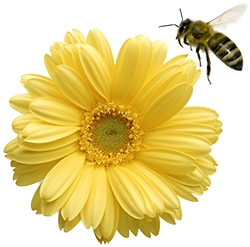

If this sounds like you, take note, because this year, you may be in for a bumpy ride. According to allergy specialist Clifford Massett, MD, clinical assistant professor of medicine at the New York University School of Medicine and Langone Medical Center, the allergy season this year will be longer and stronger than past seasons. This is due to heavy precipitation levels last winter, combined with a rapid surge in warmer weather.
Furthermore, experts fully expect plants to have three to five times more pollen than usual, resulting in a supercharged kind of pollen, thanks to higher than normal carbon dioxide emissions. All of these factors combined create the perfect conditions for a majorly unpleasant allergy season.
What are you to do? If you suffer from seasonal allergies and would like to bring them under control, see your doctor for treatment options.
Meanwhile, you can reduce your exposure by following these tips from the Mayo Clinic:
- If possible, try to stay indoors on dry, windy days.
- Delegate tasks such as lawn mowing, weed pulling, and other gardening chores that stir up allergens.
- Remove clothes you’ve worn outside; you may also want to shower to rinse pollen from your skin and hair.
- Don’t hang laundry outside- pollen can stick to sheets and towels.
- Wear a dust mask if you do outside chores.
- Check your local TV or radio station, newspaper, or the internet for pollen forecasts and current pollen levels. (AccuWeather.com or National Allergy Bureau at www.aaaai.org/global/nab-pollen-counts.aspx)
- If high pollen counts are forecast, start taking allergy medications before your symptoms start.
- Close doors and windows at night or any other time when pollen counts are high.
- Avoid outdoor activity in the early morning when pollen counts are highest.
- Use the air conditioning in your house and car.
- If you have forced air heating or air conditioning in your house, use high-efficiency filters and follow regular maintenance schedules.
- Keep indoor air dry with a dehumidifier.
- Use a portable high-efficiency particulate air (HEPA) filter in your bedroom.
- Clean floors often with a vacuum cleaner that has a HEPA filter.
